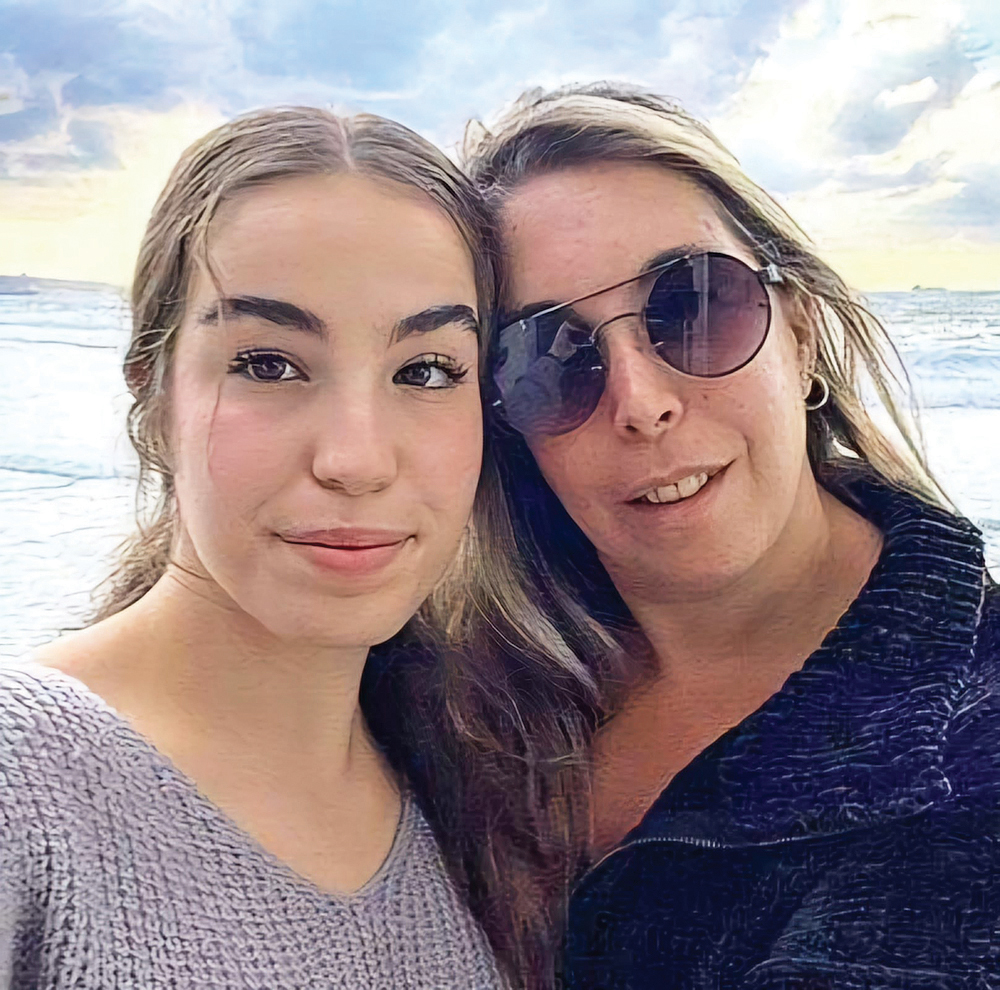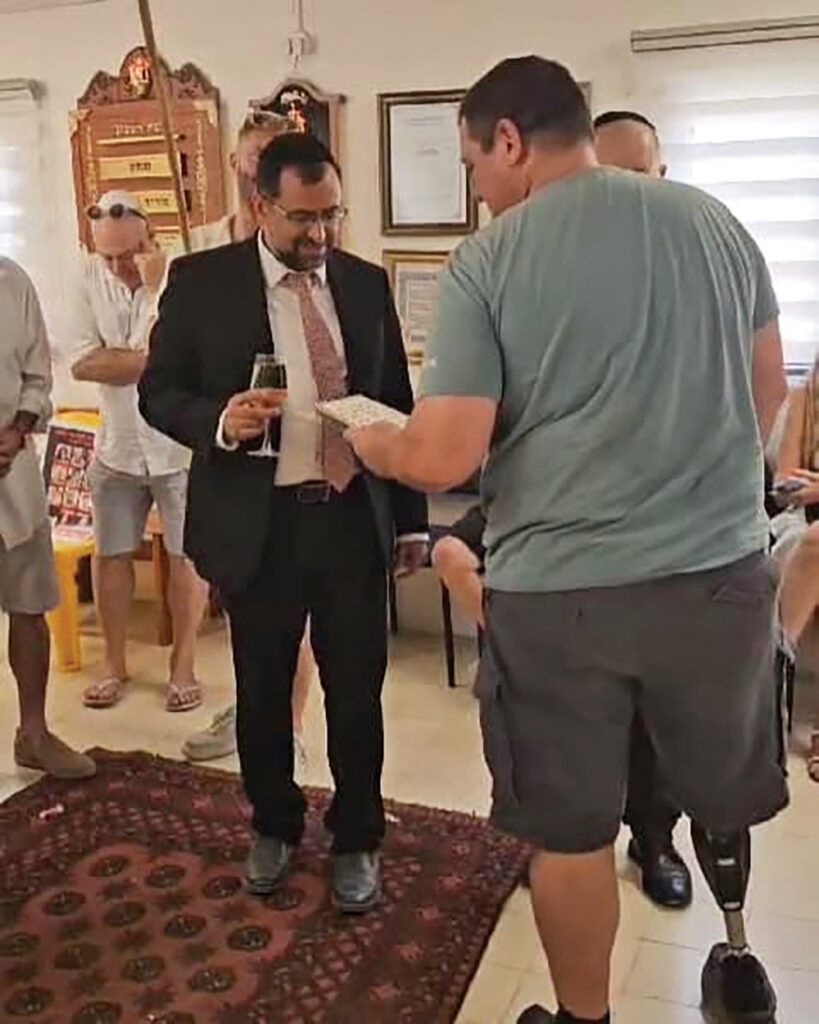
This week’s parsha opens with the verses, “Behold, I set before you today a blessing and a curse. The blessing, that you will listen to the commandments of the Lord your God, which I command you today; and the curse, if you will not listen.”
These verses are a repetition of the concept of freedom of choice. A person chooses either the blessing or the curse, between good and bad. However, a careful and literal reading of the verses shows that there is no promise of reward or punishment. Choosing to go along a certain path is in itself the actual blessing; the curse is not following that path.
The Malbim explains this verse: “If you do so, meaning that you listen to God’s commandment, this itself is the blessing.” How simple it is to write these words, yet how difficult it is to grasp and absorb them: The mere action of doing the correct thing is in itself the blessing. When you choose, you are blessed.
Their Last Day of Reciting Kaddish
Some 1,200 families will soon finish saying the Mourner’s Kaddish for their loved ones who were murdered on Simchat Torah (October 7). The custom is to recite the Kaddish prayer three times daily for 11 months, and that period ends this week. What is the meaning of the words of this prayer which was recited over and over again this year?
The Kaddish opens with the mourners expressing their desire that the magnificent Name of God be glorified and sanctified: “Yitgadal V’Yitkadash Shmei Rabbah!” The words that follow describe a perfect world that has achieved its tikkun (rectification), and beseeching that God’s presence in the world be further magnified: “Blessed and praised, glorified and exalted, extolled and honored, adored and lauded…”
Why are these words recited by the mourner after his loved one has passed away?

Since every human being is created in the image of God, when a person passes away God’s revelation in the world is diminished somewhat. Something holy is now missing from our world. Therefore, we request that the divine light be increased in order to fill that void. And this year that void is almost unfathomable.
As this period of Kaddish comes to a close, one bereaved family asked me to thank the public on their behalf. Those who were diligent in reciting Kaddish three times daily were assisted by many volunteers in Israel and throughout the world who agreed to pause in the middle of their day to join a minyan. Kaddish is never recited alone; it requires the presence of at least nine other men. Reciting Kaddish in a minyan sends a powerful and comforting message to the mourners: You are not alone.
May we soon see the fulfillment of the closing words of the Kaddish recited by so many brokenhearted people: “He Who makes peace in His heights, may He make peace upon us and upon all Israel, and say: Amen.”
Our Gift to Agam
Last week was the 20th birthday of Agam Berger who for the past 11 months has been held hostage in Gaza by Hamas.
A birthday is a joyous occasion. And as the day our soul was sent down to this world, it’s also a spiritual milestone.
Agam’s mother Merav Berger reminds us of this; precisely because it’s impossible to celebrate her daughter’s special day with a cake and a party, she is asking people to send spiritual gifts that will “pave a path of light and good deeds for Agam.”
I recently spent a Shabbat with the Berger family in Jerusalem together with other families of hostages and survivors of the Nova festival. The event was sponsored and arranged by the Kesher Yehudi organization. Since then, the participants have remained in touch through a WhatsApp group that they formed called “From Nova to Jerusalem.”
It was heartwarming to see how everyone there celebrated Agam’s birthday by taking on various good deeds and mitzvot. At their request, this initiative is continuing all over the Jewish world.
Once again you can’t help but wonder why you never hear much about the spiritual endeavors that these families have been taking on. We’ve been hearing from so many of these family members that “freeing the captives is not just about negotiating teams and political leaders; we, too, have a responsibility to do our part.”
So, in honor of Agam’s 20th birthday, instead of a conventional present, the Berger family is asking all its brothers and sisters to send a spiritual gift to Agam bat Merav, as well as to the rest of the hostages.
Rebuilding the Ruins of Be’eri
Amidst all the sirens and explosions recently, there was also the sound of joy and gladness, kol chatan v’kol kallah, the voice of the groom and the voice of the bride. Making a small but significant piece of history, last Friday saw the first wedding in Kibbutz Be’eri since the attack on October 7.
Rabbi Shlomo Ra’anan of the “Ayelet HaShachar” organization wrote that Mika Meisner from Kibbutz Be’eri and Elad Dubnov from Tal Shahar decided to get married specifically in the synagogue of Kibbutz Be’eri. One of the blessings under the chuppah was recited by Aviyad Bachar, the hero from Kibbutz Be’eri, who when fighting the terrorists on Simchat Torah, tragically lost his wife, his son and also his leg.
“They are making a statement of resilience and rebirth,” wrote Rabbi Ra’anan. “The couple will be joining the Be’eri community, which is temporarily in Hatzorim, and they are, of course, preparing to return to the kibbutz and expand it.”
In the midst of this moving, joyous ceremony, those present did not forget their brothers and sisters, and a special prayer was recited for the captives, the wounded, the IDF soldiers and all of Israel.
* Translated by Yehoshua Siskin, Janine Muller Sherr
Want to read more by Sivan Rahav Meir? Google The Daily Thought or visit sivanrahavmeir.com
Sivan Rahav Meir is a primetime news anchor on television and radio. Her “Daily Thought,” translated into 17 languages, has hundreds of thousands of followers on social media. She has a weekly podcast on Tablet, called “Sivan Says,” and has published several books In Hebrew and English. Sivan was chosen by Globes newspaper as Israel’s most popular female media figure and by the Jerusalem Post as one of the 50 most influential Jews worldwide. She lives in Jerusalem with her husband Yedidya and their five children.








